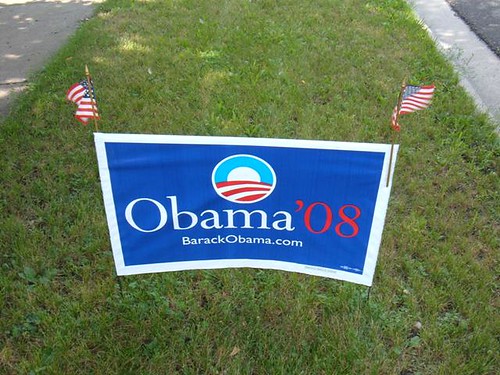 This New Years in lieu of the latest diet trend, maybe we could all consider a more meaningful and/or altruistic goal for the next 365 days. Here are some alternatives:
This New Years in lieu of the latest diet trend, maybe we could all consider a more meaningful and/or altruistic goal for the next 365 days. Here are some alternatives:
1. A GREEN resolution that can improve the quality of your own life, and the life of generations to come.
2. Involving yourself in social justice, such as through this new website, which allows you to choose a volunteer project, set goals, and track your progress.
3. An inside change, as recommended by Diane McDonald in the Patriot-Star Ledger.
4. And perhaps my own personal favorite, "Don't resolve. Reflect," take from, of all places, a 1997 editorial in Glamour. My friends and I in high school discovered this incredible little series of reflective questions, and would answer them once a year, seal the answers in an envelope, and read them again the next year to see how far we'd come. It was by far the most successful New Year's plan I've ever enacted. Here it is:
Something in the human spirit seems to demand a ritual at the start of a new year, a metaphoric squaring of the shoulders and clearing of the throat before we take it from the top-and try to get it right this time. And so, we resolve: I will lose ten pounds, volunteer at a soup kitchen, be nicer to my mother. Only to find that our well-intentioned declaratives have exhausted resolve rather than strengthened it-even before Valentine’s Day.
This New Year, we propose an alternative to resolutions: Rather than resolve, reflect. Rather than declare, question. Don’t expect the answers to come easily. Dare to doubt. Be willing to stir up an internal insurrection. Yes, uncertainty can be unsettling. But the answers to these questions can be revealing as well.
1. If I had to wear my philosophy of life as a motto on a T-shirt, what would it be? Of course, no one can be summed up in an epigrammatic sentence or two. But, just for fun, why not try?
2. When was the last time I felt joy? Not just pleasure, joy. Was it provoked by a someone, a something, a somewhere? That soaring feeling still lives inside me. What can I do to wake it up?
3. Is there anything unfinished in my life that I am willing to walk away from forever? If I haven’t thus far learned French, gotten a dog, started my own business, maybe it’s time to make room for new dreams. Hit delete. See what happens.
4. Am I inhibited by a fear of failing? Just for a moment, pretend that failure is a triumph, not a shame. Now what would I reach for, what would I risk?
5. If I were to take my ten-year-old self to lunch, what would she think of me? Do I still have her passions, her opinions, her willfulness? Do I still know what she knows?
6. Do I believe in God? What exactly is my position on the Big Questions? Do I have spiritual belief that are truly my own, not someone else’s?
7. Have I made a home for myself? Or am I still waiting for My Real Life to begin? I already know I don’t have to be married or mortgaged or otherwise permanently committed to nest. So what’s keeping me from saying this is My Real Life now?
8. If I could take a six-month sabbatical from my current job, what would I do? Travel around the world? Perform good deeds? Put my bottom in a chair and my head in a book? If I don’t know the answer, how can I begin to figure out what my dream is?
9. What do I like most about my appearance? What are my secret vanities? Can I be a show-off for a change? Can I strut my stuff on a regular basis?
10. How do I envision myself at 60? What would I like to look like? What would I like to know that I don’t know now? What should I be doing now that I will happily look back on then?
11. Am I living my life for an audience? Have I internalized a watchful someone: Mom, my best friend, an ex-boyfriend? Is my audience worthy of judging me? How can I banish them forever and live for myself?
12. What can I do about the people I have disappointed and been disappointed by? If I could heal a damaged relationship, would I? Is there anyone whose lost friendship and regard I mourn? Or is it time to move on?
13. How much money will I need for retirement? Does simply asking the question make me hyperventilate? Can I stand to do the math? Am I brave enough to begin?
14. Am I as healthy as I want to be? If I imagine myself, circa 2020, how would I like to feel, physically and mentally? What steps should I be taking now to make sure that ideal becomes a reality?
 15. Am I capable of being alone? Does the prospect of an entire weekend by myself stimulate or panic me? If I’m not in psychic shape for the occasional bout of solitude, I need to be. Start thinking about what is scary about aloneness and how to overcome it.
15. Am I capable of being alone? Does the prospect of an entire weekend by myself stimulate or panic me? If I’m not in psychic shape for the occasional bout of solitude, I need to be. Start thinking about what is scary about aloneness and how to overcome it.
16. Do I see success as a lavish banquet or a scarce commodity? When a good friend triumphs, do I feel depleted- as if there’s a limited amount of goodies to go around? Is it possible to transform envy into a this-means-I-can-do-it-too signal?
17. How do I want to love and be loved? What is my definition of a wonderful marriage, partnership, love affair? How close have I come to finding that? What is left for me to do in order to attract the love I want?










































